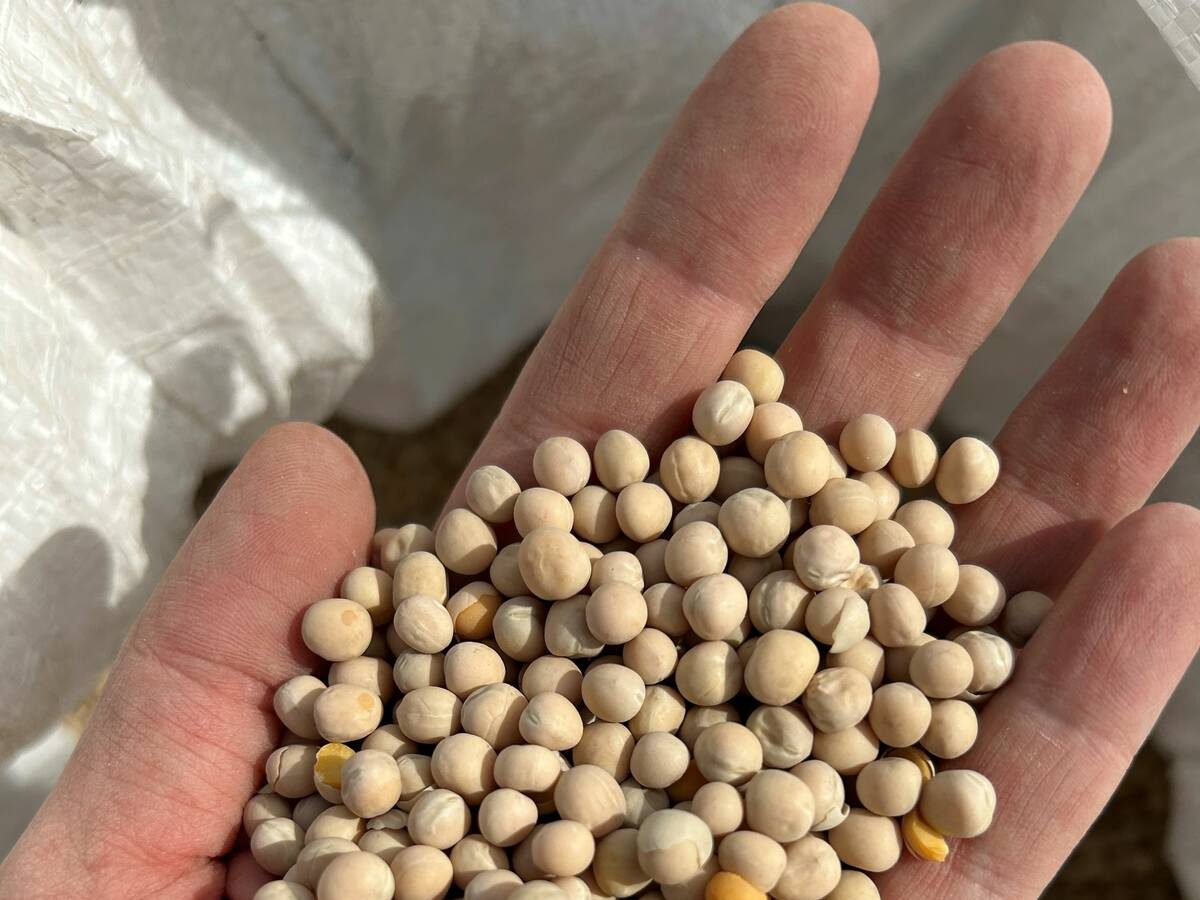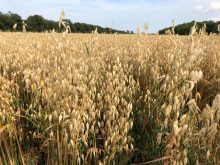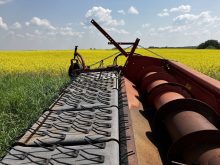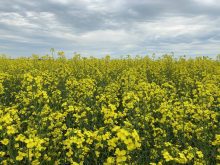(Resource News International) — Higher crop production numbers in
Statistics Canada’s latest crop production report were not
unexpected. What’s surprising was that the government
agency was willing to raise the numbers significantly at one
time, rather than over a gradual period of time, market
participants said.
“‘Stunning’ is a word I would use,” said Tony Tryhuk, vice-president and manager of commodity trading for RBC Dominion
Securities, in regards to the decision by StatsCan to
increase the crop size by such a large number at one time.
Read Also

Pulse Weekly: Despite dropped tariffs, work remains for Pulse Canada
Pulse Canada was relieved when China announced the removal of 100 per cent tariffs on Canadian yellow peas on Jan. 16, but work still needs to be done in India.
The agency has a record of not putting any huge increase or
decrease in the numbers at one time, he said, adding that the
agency has in the past increased or decreased the number in
subsequent reports accordingly.
Ron Frost, manager of AgProfit Driver, the marketing
division of the Pike Management Group in Calgary, agreed
the trade had been anticipating some large crop numbers, but the
surprise was the rate at which the figures were raised.
Statistics Canada pegged Canada’s 2008-09 canola
crop at 12.642 million tonnes, which surpassed pre-report
expectations of 11.1 million to 12.5 million tons. The latest
estimate compares with the 10.87 million-tonne estimate released
in early October and the 2007-08 level of 9.529 million tonnes.
“Whether the crop is 12 to 12.6 million tonnes, that will be
a lot of supply to work with,” said Ken Ball, a broker with Union
Securities in Winnipeg.
He linked the huge canola production jump to the average
national yield being up.
The average national yield for canola was 34.7 bushels per
acre, Ball said. Usually, the national average yield is around 28
to 29 bushels.
In Alberta, the provincial average canola yield was 36.9
bushels per acre; in Saskatchewan it was 32.4 and in Manitoba it was also
36.9.
“Demoralizing”
Frost felt that the record-large canola crop will translate
into record-sized carryover and with that will come lower prices.
“The canola number was definitely demoralizing for
producers, as there are a huge number of these individuals who
could have made some cash sales at higher prices, but now will
have to contend with prices that are unlikely to be very
attractive.”
Frost felt that with the lower prices and record large
carryout prospects, there could be a lowering in seeded area to
the crop next spring.
Tryhuk, however, predicted that with domestic processing
capacity set to climb significantly in 2009, the impact on prices
might be muted to some degree.
“You have to remember there are some extremely large
facilities being built by James Richardson International and
Cargill Ltd., in Western Canada that should be able to easily
The agency estimated Canadian 2008-09 barley output at 11.781 million tonnes, which was also at the high end of pre-report ideas that ranged from 11.2 to 11.7 million. The latest estimate compares with the 11.219 million-tonne projection made in
early October and the 10.984 million tonnes produced in 2007-08.
“With the large amount of extra feed wheat around the globe,
including the huge Canadian wheat crop, and with a larger than
expected eastern Canadian corn crop, there will be little
shortage of feeds this time around,” Ball said.
All-wheat production in Canada during 2008-09 was put at
28.611 million tonnes. Pre-report ideas had called for a crop in
the 25.5 million- to 28.4 million-tonne area. The latest
projection also compares with the 27.266 million-tonne figure
released in early October and the 20.054 million produced in
2007-08.
“That extra one million tonnes of milling wheat was seen
putting some downward pressure on the U.S. wheat market,” Ball
said.
Of all the numbers, only the oats crop came in at the low
end of pre-report expectations.
Statistics Canada pegged 2008-09 Canadian oats production at
4.272 million tonnes. Pre-report ideas had called foe a crop in the
4.4 million- to 4.9 million-tonne area. The agency, in October,
had estimated oats output at 4.321 million tonnes, while in
2007-08, production was 4.696 million.
Frost felt a drop in acreage was responsible for the smaller-than-anticipated oats crop as yields in Western Canada were said to be above normal.
Ball also felt that the acreage numbers for the crop must
have been adjusted down.
Statistics Canada in its latest report put Canadian 2008
seeded area at 4.345 million acres, down from the early
October level of 4.682 million.
Table 1 of 2: Statistics Canada’s 2008-09 grain/oilseed production summary, compared to trade estimates, in millions of tonnes.
| Trade | StatsCan | StatsCan | StatsCan | |
| estimates | Nov 08-09 | Sep 08-09 | 2007-08 | |
| Canola | 11.10-12.50 | 12.642 | 10.870 | 9.529 |
| All wheat | 25.50-28.40 | 28.611 | 27.266 | 20.054 |
| Barley | 11.20-11.70 | 11.781 | 11.219 | 10.984 |
| Flax | 0.80-0.85 | 0.861 | 0.768 | 0.634 |
| Oats | 4.40-4.90 | 4.272 | 4.321 | 4.696 |
Table 2 of 2: Statistics Canada 2008-09 grain/oilseed production estimates as of November 2008, released Dec. 4. Production in thousands of tonnes, yield in bushels per acre, area harvested in thousands of acres.
| Production | |||||
| Harvested | Indic. | November | September | November | |
| area | yield | 2008 | 2008 | 2007 | |
| All wheat | 24,789.0 | 42.4 | 28,611.1 | 27,265.5 | 20,054.0 |
| Winter wheat | 2,586.6 | 66.5 | 4,686.9 | 4,698.4 | 2,499.2 |
| Spring wheat | 16,232.3 | 41.7 | 18,404.0 | 17,496.9 | 13,873.4 |
| Durum | 5,970.0 | 34.0 | 5,519.3 | 5,070.2 | 3,681.4 |
| Oats | 3,579.3 | 77.4 | 4,272.6 | 4,321.0 | 4,696.3 |
| Barley | 8,652.4 | 62.5 | 11,781.4 | 11,219.0 | 10,983.9 |
| Fall rye | 325.0 | 38.3 | 316.2 | 307.4 | 233.0 |
| Canola | 16,048.2 | 34.7 | 12,642.9 | 10,870.1 | 9,528.0 |
| Flaxseed | 1,545.0 | 21.9 | 861.1 | 767.9 | 633.5 |
| Soybeans | 2,953.9 | 41.5 | 3,335.9 | 3,239.9 | 2,695.7 |
| Corn | 2,887.9 | 144.4 | 10,592.0 | 9,892.5 | 11,648.7 |
| Dry peas | 3,910.0 | 33.6 | 3,571.3 | 3,526.6 | 2,934.8 |
















